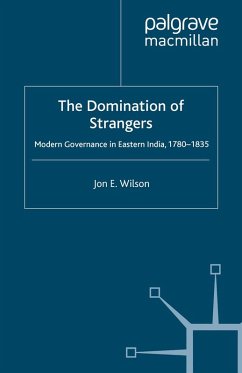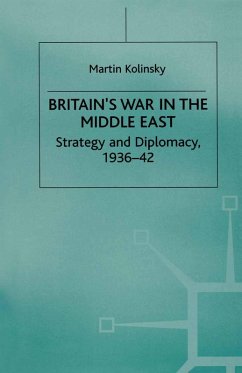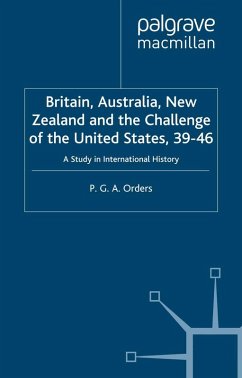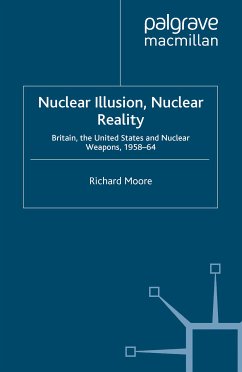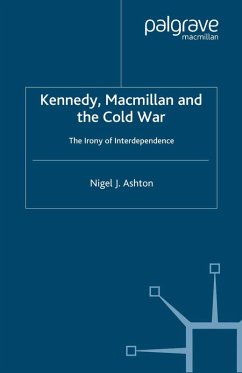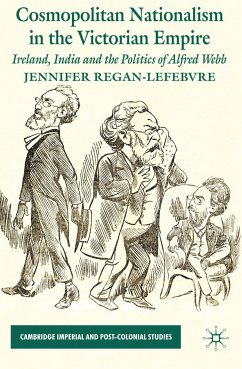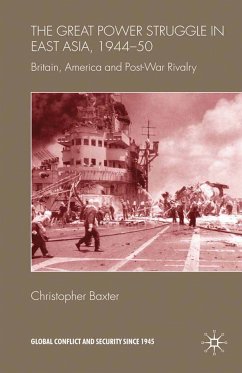
Christopher Baxter
eBook, PDF
The Great Power Struggle in East Asia, 1944-50 (eBook, PDF)
Britain, America and Post-War Rivalry

PAYBACK Punkte
20 °P sammeln!






The first full account of British policy towards China, Japan and Korea from the final stages of the Second World War to the outbreak of the Korean War, set against the backdrop of the Anglo-American relationship, broader Far Eastern developments, the beginnings of the Cold War, and Britain's relationship with the Commonwealth.
Dieser Download kann aus rechtlichen Gründen nur mit Rechnungsadresse in A, B, BG, CY, CZ, D, DK, EW, E, FIN, F, GR, HR, H, IRL, I, LT, L, LR, M, NL, PL, P, R, S, SLO, SK ausgeliefert werden.
CHRISTOPHER BAXTER is a Research Fellow in Intelligence History at Queen's University Belfast. He was formerly one of the Foreign Office's resident historians and is currently working on the Official History of SIS (MI6) with Professor Keith Jeffery. He is the co-editor of Diplomats at War: British and Commonwealth Diplomacy in Wartime (2008).
Produktdetails
- Verlag: Palgrave Macmillan UK
- Seitenzahl: 250
- Erscheinungstermin: 29. Oktober 2009
- Englisch
- ISBN-13: 9780230246782
- Artikelnr.: 45963367
"Historians interested in Anglo-American relations in the immediate post-war years will find this trawl through the official archives fascinating and instructive." Sir Hugh Cortazzi, The Japan Society
"Those who used to rely on Christopher Thorne, whose Allies of a Kind (1978) dealt with the war against Japan, will now have to follow another Christopher...With such an auspicious professional beginning, he will be closely read in the future" - J. M. Lee, Asian Affairs
'Baxter's book is very detailed and has been judiciously researched among secondary literature on this topic from the last two decades, especially journal articles and edited volumes. Archival holdings, memoirs, diaries and private papers of the key civilian
"Those who used to rely on Christopher Thorne, whose Allies of a Kind (1978) dealt with the war against Japan, will now have to follow another Christopher...With such an auspicious professional beginning, he will be closely read in the future" - J. M. Lee, Asian Affairs
'Baxter's book is very detailed and has been judiciously researched among secondary literature on this topic from the last two decades, especially journal articles and edited volumes. Archival holdings, memoirs, diaries and private papers of the key civilian
Mehr anzeigen
and military officials are successfully synthesised....a solid and impressive work which will prove a very useful addition for students and academics seeking a more specific regional variation on the shaping of post-war Anglo American foreign policies and the origins of the Cold War.' - Diplomacy & Statecraft
'The post-war British effort to retain a place of prominence in deciding world affairs is a sad tale that Christopher Baxter ably tells in his study discussing the early Cold War years in Japan, China and Korea...Among this study's strengths is its description of Australia's role as 'a major sub-plot' in post-war Anglo-American relations in East Asia, documenting how Britain failed to persuade its Commonwealth protégéto expand its regional security capabilities...Extensive research in archival collections stretching from Britain to the United States to Australia and a long list of secondary sources supports Baxter's findings. Making excellent use of remarks in primary documents, the author [also] exposes hidden British contempt for US leaders.'
-James Matray, The Journal of Imperial and Commonwealth History
"Based on extensive research in British, American and Australian archives and a sizeable body of secondary literature, Baxter manages to give a detailed account of the intricacies of Great Britain's involvement in the Far East. His coverage of the Australian dimension to British Far Eastern policy is especially enlightening... It offers interesting insights into an understudied period of early Cold War international history that culminated in Britain's involvement in Korea in 1950, an action deemed strategically unthinkable only a few years before." - Matthew Seibold, Contemporary British History
'This book contributes to our understanding of the apprehensions and misunderstandings of British diplomats as they sought strategic withdrawal from East Asia. The thesis - that it was the limitations of British statescraft that ultimately explains why Britain committed scarce military resources to the area - is persuasive.' - Journal of Contemporary History
'The post-war British effort to retain a place of prominence in deciding world affairs is a sad tale that Christopher Baxter ably tells in his study discussing the early Cold War years in Japan, China and Korea...Among this study's strengths is its description of Australia's role as 'a major sub-plot' in post-war Anglo-American relations in East Asia, documenting how Britain failed to persuade its Commonwealth protégéto expand its regional security capabilities...Extensive research in archival collections stretching from Britain to the United States to Australia and a long list of secondary sources supports Baxter's findings. Making excellent use of remarks in primary documents, the author [also] exposes hidden British contempt for US leaders.'
-James Matray, The Journal of Imperial and Commonwealth History
"Based on extensive research in British, American and Australian archives and a sizeable body of secondary literature, Baxter manages to give a detailed account of the intricacies of Great Britain's involvement in the Far East. His coverage of the Australian dimension to British Far Eastern policy is especially enlightening... It offers interesting insights into an understudied period of early Cold War international history that culminated in Britain's involvement in Korea in 1950, an action deemed strategically unthinkable only a few years before." - Matthew Seibold, Contemporary British History
'This book contributes to our understanding of the apprehensions and misunderstandings of British diplomats as they sought strategic withdrawal from East Asia. The thesis - that it was the limitations of British statescraft that ultimately explains why Britain committed scarce military resources to the area - is persuasive.' - Journal of Contemporary History
Schließen
Für dieses Produkt wurde noch keine Bewertung abgegeben. Wir würden uns sehr freuen, wenn du die erste Bewertung schreibst!
Eine Bewertung schreiben
Eine Bewertung schreiben
Andere Kunden interessierten sich für




